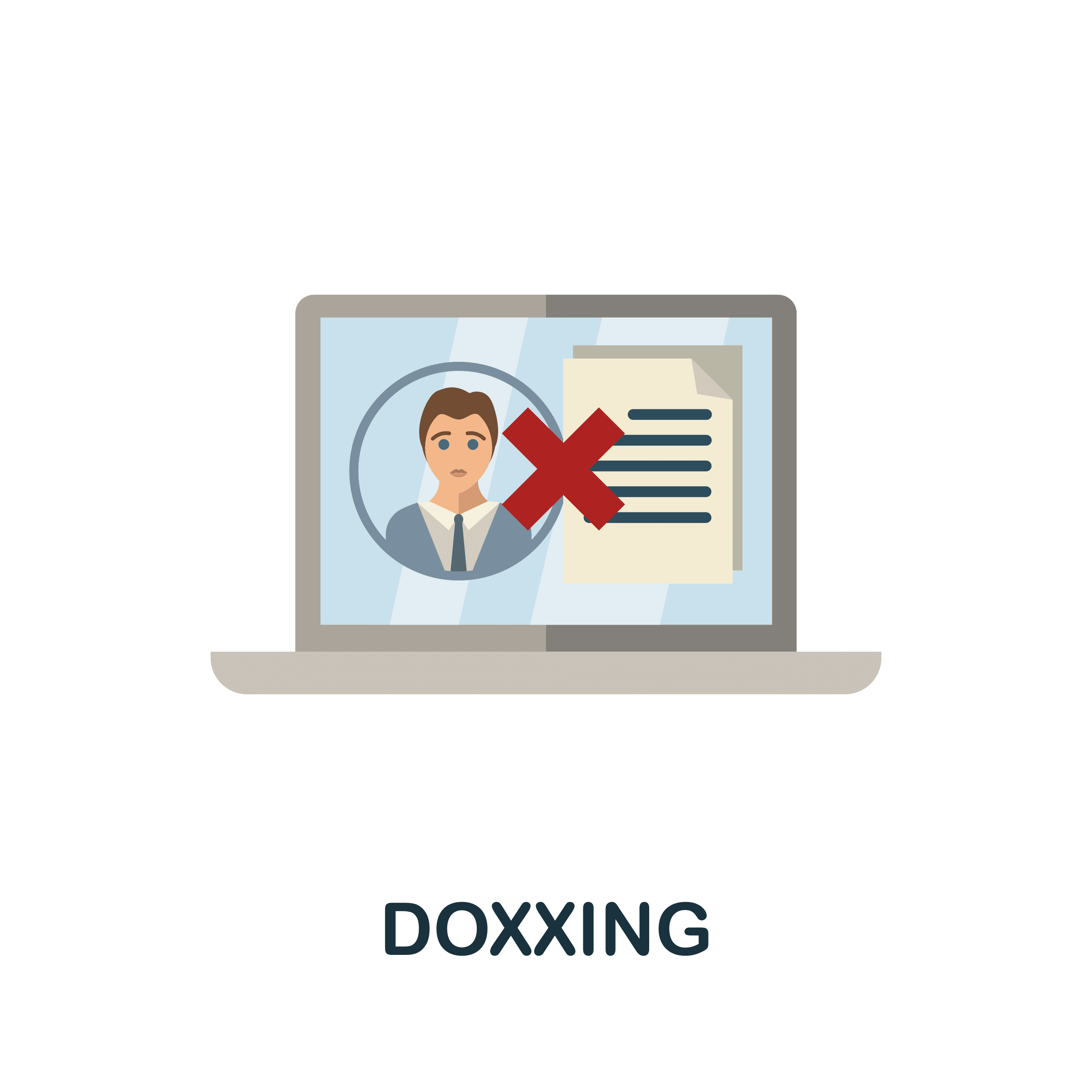
What Is Being Doxxed and How Can You Protect Yourself From It

Doxing, (also written as doxxing) is when someone publicly publishes confidential information such as your real name, home and workplace address, contact numbers, financial statements, and other identifying personal information. This is done without your knowledge and consent to harass and exploit you.
Learn more about what is doxxing someone and how you can keep your personal data protected. Then, find out how using a single cybersecurity tool can effectively prevent doxxing from happening.
You might be wondering “how do people get doxxed?” People have identifying information all over the internet; this information is known to your internet service provider and third-party websites.
How Doxxing Work
Every person who uses the internet has some of their data stored somewhere. This is because websites collect and store data from every person that visits their site to optimize your experience while on its site by remembering your searches and preferences. Websites also require your IP address to uniquely identify each visitor, which helps them track you and profile you.
Without any of your data kept on the net, doxxing would be virtually impossible. Armed with this information, hackers can trick your ISP into providing more information about you.
Social media makes it easy for doxers or anyone for that matter to obtain crucial information about you and those around you. Doxers may use what they find on your social media to hurt you.
Some doxers can use more complex strategies to obtain your data. These may involve sniffing and phishing. Sniffing is when your internet traffic gets intercepted while it’s being transmitted from your device. Phishing is when cybercriminals trick you into giving them personal information about you using deceptive communication.
How to Not Get Doxxed
Understanding what getting doxxed means is only half your job in ensuring that you keep yourself safe. There is information that you wouldn’t want anyone to access without your consent, and it’s your responsibility to ensure that it’s protected, and inaccessible to unauthorized persons. There are ways in which you can reduce the possibility of someone obtaining your private data without authorization.
Minimize or totally avoid sharing personal information on platforms such as social media. Where possible, set information such as your email address, phone number, and date of birth hidden from everyone else. These measures can significantly lessen the chances of being doxxed.
Setting strong and complex passwords will make it hard for doxxing to be done to you, no one will easily gain access to your accounts. Using two-factor authentication will make it a lot harder for anyone to log in to your account without your device to authenticate the request.
To prevent being doxxed, you will also want to ensure that you have optimized the security settings on your device and accounts. This will improve your security to some level, again lessening the chances of doxers digging up information on you.
Keep your data private and safe from those who may want to use it maliciously
Use VPN Unlimited to prevent doxxing!
Note: VPN Unlimited is also part of MonoDefense security bundle.
How to Avoid Doxxing
One way you can prevent doxxing is by ensuring that you don’t keep a trail of your personal data on the internet. A VPN helps you establish a private and secure connection to the internet, in which all the data that’s transmitted from your device is encrypted. Your IP address is hidden from third-party websites, making it impossible for them to track your online activities. No one can profile you or collect data from you unless you have permitted them to do so.
Why Use VPN Unlimited
- VPN Unlimited doesn’t keep a log of your internet activity. This means only you know what you are doing, not even your ISP has access to your traffic.
- Your data is encrypted before it leaves your device, and can only be decrypted by the intended receiver.
- You can change your virtual location, allowing you to access geo-blocked sites and apps, and increase your anonymity.
- VPN services are known to significantly decrease internet speeds, but that’s the case with VPN Unlimited, which has superfast VPN servers to help you enjoy your browsing and streaming without lag.
- It’s part of the MonoDefense security bundle, offering you comprehensive protection for all your sensitive data.
Never worry about the safety of your data while using the internet
keep your identity hidden using VPN Unlimited!